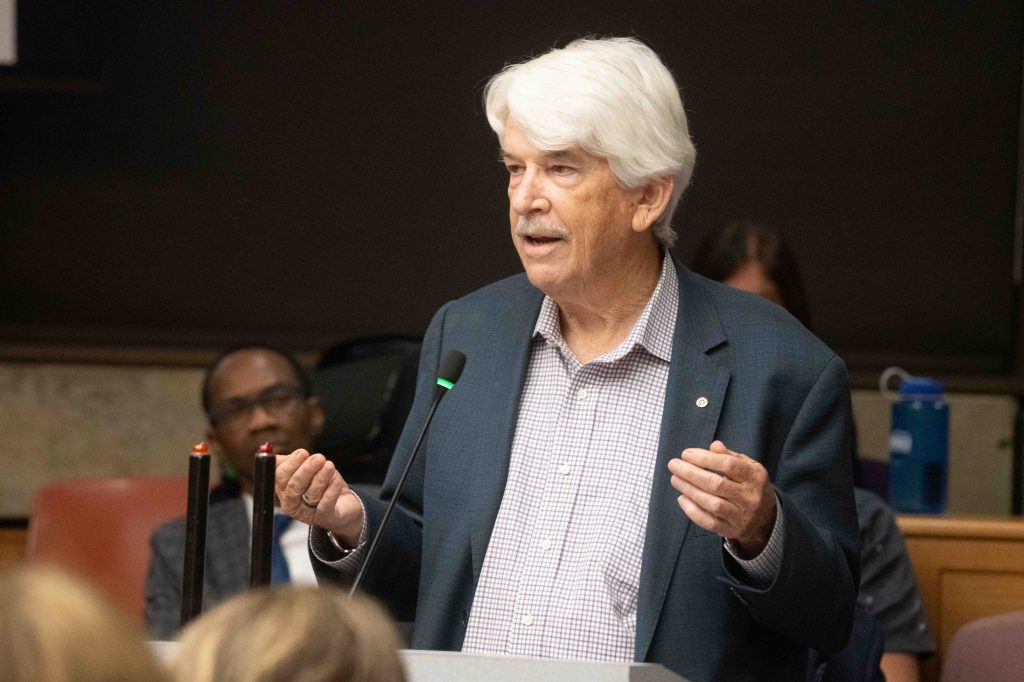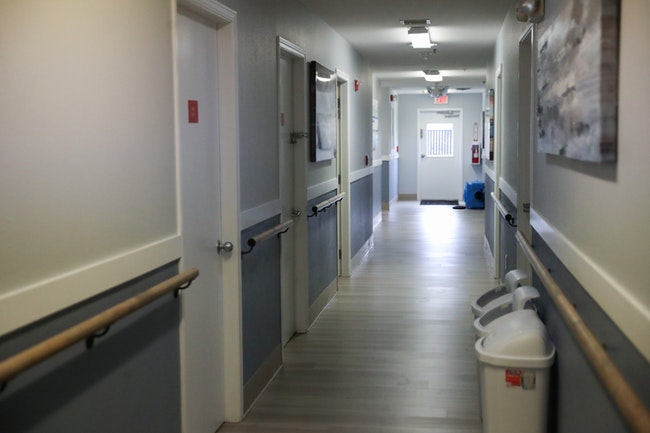Salem will get a sobering center and double the number of residential drug treatment beds for adults in the community thanks to a $11.5 million investment from Oregon legislators.
Salem-based Bridgeway Recovery Services was among the addiction treatment providers who received money out of the 2024 legislative session as lawmakers sought reforms to the state’s drug decriminalization law, Measure 110.
The money will fund two projects to bring badly-needed treatment to Salem, said Tim Murphy, Bridgeway’s CEO.
This spring, Bridgeway will purchase two houses in south Salem for $1.5 million and open them as residential drug treatment homes, each with eight beds.
Another $10 million will fund construction of a new detox and sobering center next to Bridgeway’s existing downtown clinic, bringing a long-awaited service to the state’s capital.
New residential treatment in Salem
The treatment houses were previously used by the Center for Hope and Safety and are already set up as group homes, so they need only minimal work to open their doors.
Murphy expects they’ll open in May. Bridgeway now operates 16 residential beds for people with substance abuse problems, and eight for problem gamblers. Other treatment providers in Salem offer sober living group homes or housing for people in recovery, but there are no other residential treatment homes.
“That’s a big expansion,” Murphy said. Bridgeway benefitted from the state’s focus on “shovel-ready” projects that could open new treatment spaces quickly.

Rep. Kevin Mannix, a Salem Republican, and Sen. Deb Patterson, a Salem Democrat, pushed for the funding.
Mannix was a leader in the effort to re-criminalize drug possession in Oregon and worked on HB 4002, the bipartisan compromise legislators passed this year.
The bill, which Gov. Tina Kotek signed into law in March, added criminal penalties for possession of drugs while offering people arrested a chance for diversion and treatment. It also included funding to expand addiction treatment.
Mannix said he looked for projects that could benefit the Salem area and was impressed with Bridgeway’s existing work.
“It fits in with the approach we’re taking with HB 4002. We’re trying to emphasize the treatment and re-entry elements of recovery. It’s not meant to be a one-dimensional approach,” Mannix said.
Salem gets a sobering center
The bulk of the state money, $10 million, will go toward building a new detox and sobering center adjacent to Bridgeway’s clinic on Northeast Front Street.
When it opens next year, the facility will house Bridgeway’s existing detox program: 34 beds where people receive medical care to help combat the effects of withdrawal from street drugs.
It will also add seven sobering beds — a place for police or emergency room providers to send people who are under the influence of alcohol who need a place to sleep it off.
A sobering center is something Salem city leaders, homeless service providers and Salem Health leaders have said the city badly needs for years.
Without such a service, police called to respond to someone who’s being drunk and disorderly have three choices, Murphy said: take them to jail, drive around with a drunk person in the back of their police car, or take them to the emergency room.
“All three of those are miserable outcomes for everybody,” Murphy said.
But sobering is difficult to pay for. Unlike detox or drug treatment, health insurance, including Medicaid, doesn’t cover it. That means providers need to find outside money to pay for it.
“At various times we’ve had everybody on board but nobody had any money, or if they did have any money they didn’t want to spend it on sobering,” Murphy said. “People don’t like to do it because there’s no money in it.”
Last fall, the city of Salem pulled the plug on a years-long effort to stand up a sobering center, saying costs had risen too much and Salem wasn’t in a position to pay for new services.
Patterson, who has tried to get state help for a Salem sobering center for years, said she was happy a project is finally moving forward.
“That’s going to be absolutely critical,” she said. “It’ll be a real assistance to our first responders.”
Murphy said Bridgeway’s scale will allow them to offer sobering by using the money they bring in from other services covered by health insurance. His hope is that locating sobering and detox in the same building will help convince some people who use sobering services to enroll in treatment.
The treatment provider’s current detox facility will be repurposed for other services, Murphy said.
Building the new center will cost about $16 million, Murphy said. The rest of the money comes from an earlier grant Bridgeway received from the state through Measure 110, the drug decriminalization law.
The building will also include a commercial kitchen to support Bridgeway’s residential programs, and more space for primary care.
Bridgeway plans to break ground in April, and construction will take about a year.
Contact reporter Rachel Alexander: [email protected] or 503-575-1241.
SUPPORT OUR WORK – We depend on subscribers for resources to report on Salem with care and depth, fairness and accuracy. Subscribe today to get our daily newsletters and more. Click I want to subscribe!

Rachel Alexander is Salem Reporter’s managing editor. She joined Salem Reporter when it was founded in 2018 and covers city news, education, nonprofits and a little bit of everything else. She’s been a journalist in Oregon and Washington for a decade. Outside of work, she’s a skater and board member with Salem’s Cherry City Roller Derby and can often be found with her nose buried in a book.










